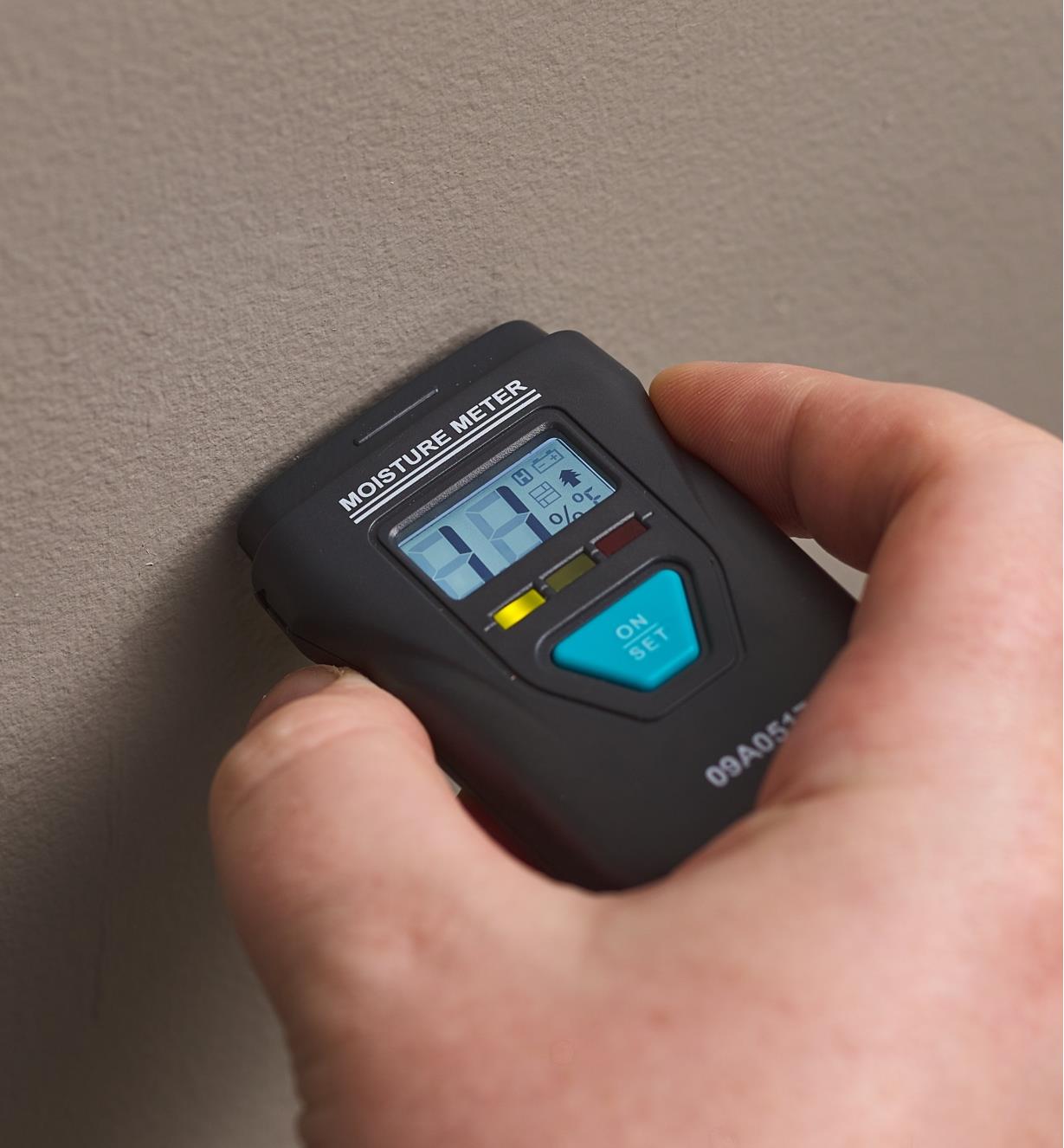Comprehending the Different Kinds Of Moisture Meters and Their Applications
Comprehending the Different Kinds Of Moisture Meters and Their Applications
Blog Article
The Ultimate Overview to Wetness Meters: A Comprehensive Review and How They Can Save You Money
Wetness meters offer as indispensable tools in identifying and checking moisture material in products, assisting in avoiding expensive problems and guaranteeing the top quality of products. Recognizing the nuances of various types of dampness meters, their applications, and the possible cost-saving advantages they provide can be a game-changer for experts and companies alike.
Kinds Of Moisture Meters
One common kind is the pin-type moisture meter, which gauges the electrical resistance in between 2 pins put right into a product. Pinless moisture meters, on the other hand, usage electro-magnetic sensor plates to scan a larger area without triggering damages to the product's surface.

Moreover, there are additionally specialty wetness meters created for particular materials like hay, grain, or dirt. These meters supply accurate dampness readings tailored to the one-of-a-kind properties of the product being checked. Infrared wetness meters gauge the thermal residential or commercial properties of a product to establish its dampness material non-invasively, making them useful for applications where pin or pinless meters might not appropriate. Understanding the various types of wetness meters available can aid industries pick the most proper tool for their certain wetness dimension demands.

Benefits of Making Use Of Wetness Meters
Dampness meters supply indispensable benefits in precisely keeping an eye on and analyzing wetness degrees in varied products and atmospheres. One of the main benefits of using moisture meters is the avoidance of possible damage caused by excess moisture.
Furthermore, making use of wetness meters can lead to raised energy efficiency. In farming settings, dampness meters play a vital role in maximizing crop returns by making it possible for farmers to keep track of dirt wetness degrees and make informed watering choices.
Just How to Select the Right Moisture Meter
Picking the proper moisture meter entails taking into consideration essential factors such as material compatibility, dimension range, and calibration precision. When selecting a moisture meter, it's necessary to guarantee that the meter appropriates for the particular material you will be testing. Different products have varying electrical buildings that can influence wetness analyses, so choosing a meter designed for your product is essential for precise outcomes. In addition, take into consideration the measurement range of the moisture meter. Make sure that the meter can identify dampness degrees within the array needed for your applications. Calibration precision is another important variable to remember. Choose a moisture meter with trusted calibration to ensure consistent and accurate readings. Some meters read the article may require periodic calibration modifications, so recognizing the calibration procedure is very important. By very carefully examining these variables, you can pick a dampness meter that satisfies your requirements and gives accurate moisture measurements for your jobs.
Proper Strategies for Wetness Meter Usage

Price Financial Savings With Dampness Meter Applications
How can the tactical application of wetness meters lead to considerable price savings across different markets? In the farming industry, moisture meters help in identifying the ideal time for harvesting plants, stopping excess or over-drying wetness that can impact the final product's high quality.
Likewise, in construction, dampness meters aid stop expensive problems by spotting dampness degrees in building products, such as wood or concrete, which can cause structural issues if not resolved promptly. By determining trouble locations early on, professionals can take rehabilitative actions to prevent extensive fixings or substitutes, eventually conserving time and money.
Moreover, in the food processing sector, dampness meters are vital for keeping an eye on product quality and ensuring compliance with security policies. By accurately determining moisture content in food, producers can prevent wasting, keep quality, and reduce waste, causing substantial price savings. Generally, the critical application of moisture meters is a useful financial investment that read this article can bring about significant cost reductions and boosted effectiveness throughout various industries.
Verdict
In final thought, wetness meters are important devices for determining and detecting moisture levels in different products. By utilizing the ideal moisture meter and following appropriate techniques, users can efficiently avoid pricey damages caused by excess dampness.
Dampness meters offer as vital tools in detecting and checking moisture content in materials, aiding in avoiding costly damages and guaranteeing the high quality of items. Infrared wetness meters measure the thermal residential or commercial properties of a material to identify its wetness content non-invasively, making them helpful for applications where pin or pinless meters might not be suitable.Dampness meters offer invaluable advantages in precisely monitoring and analyzing dampness degrees in varied products and environments. In agricultural setups, moisture meters play an important role in enhancing plant yields by enabling farmers to check dirt dampness levels and make notified watering choices.In verdict, wetness meters are valuable tools for determining and finding moisture levels in different materials.
Report this page